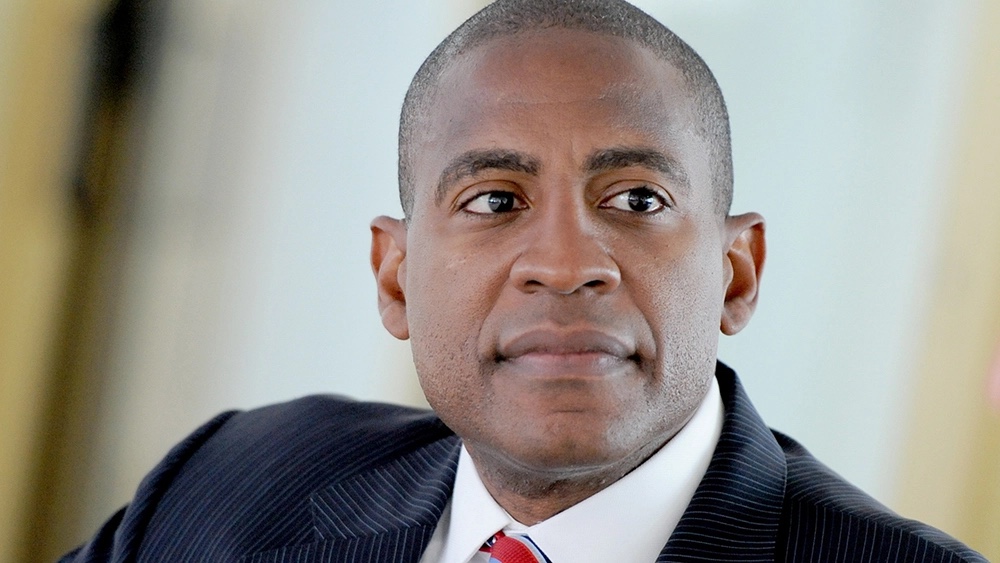This Startup Founder Took ‘Faking It Till We Make It’ Too Far: The Man Who Scammed His Staff Into Working For A Non-Existent Company

Catrin Nye’s documentary Jobfished, which aired on BBC Three on February 21, offered an investigation into Madbird – a pretend digital design agency startup that was at the center of an elaborate con throughout 2020.
Ali Ayad, who claimed he previously worked for Nike, told people he was the co-founder of Madbird, a design agency that he said had existed for 10years and worked on projects for big companies such as Facebook and Samsung.
He also claimed that the company had employed a team of around 50 people.
In reality, though, this was all a lie. The LinkedIn profiles he had created were fake, and the Zoom calls were staged. Ayad was operating a number of different accounts and maintaining different personalities all on his own.
The pretend company would hire employees on an unpaid probation period, where they would only receive commissions on sales before receiving a fixed salary after six months.
Desperate and in need for a job – most of the employees were happy to take on the job.
Using online reverse image searches – it was revealed that almost all the work Madbird claimed as its own had been stolen from elsewhere on the internet – and that some of the colleagues they’d been messaging online didn’t exist.
At least six of the most senior employees profiled by Madbird were fake. Their identities stitched together using photos stolen from random corners of the internet and made-up names, reported BBC.
His business partner “Dave Stanfield”, for example, was invented by Ayad entirely – the image used on his LinkedIn account and email profile was actually a picture of a beehive maker from Prague, who had no idea what was going on with Madbird.
His former employees, many of who had not been paid for their work due to the nature of their contract, have spoken out in the new film.
It’s not the first time we’ve heard of a startup founder or colleagues reportedly fabricating things in order to appear more advanced than they are.
Carlos Watson, the CEO of Ozy – a digital media company that was recently embroiled in a series of scandals involving allegations of fraud, executive misbehavior, and misrepresentation of business metrics – last week shared an extremely positive article about the site’s alleged resurgence.

But Vice believes it was actually written by a fake journalist.
“OZY is getting redesigned! Read all about the new look here,” Watson tweeted on Wednesday, alongside a link to a Tech Bullion article titled “Ozy Media CEO Carlos Watson Says a Fun Redesign Is on the Horizon.” That article – now deleted but archived – was written by a journalist with the name of Hugh Grant.
Grant, according to his author bio on Tech Bullion, has published at least 19 articles on the site and appears in his bioimage as an affable young Anglo man with facial hair and glasses.
But that same picture is used by a dozen other people.
A reverse search of that image through Google Lens reveals at least half a dozen people sporting the exact same headshot – including the author of a fawning review for blue light lenses; a co-founder of Zambia’s Ministry of Commerce and Trade; and three of the eight directors from Matthew McConaughey’s Just Keep Livin foundation, reported Vice.
How reverse image and Google maps also helped Madbird employees spot the fake from the real
Gemma Brett, a 27-year-old designer from west London, had only been working at Madbird for two weeks when she spotted something strange.
She hadn’t worked from the office because all employees were required to work from home but one day she was curious about what her commute would be like when the pandemic was over, so she searched for the company’s office address.
The result looked nothing like the videos on Madbird’s website of a sleek workspace buzzing with creative types. Instead, Google Street View showed an upmarket block of flats in London’s Kensington.
It also turned out the company had not been “shipping products and experiences locally and globally for 10 years” as it had claimed – Ali had only registered Madbird with Companies House on the same day he interviewed his sales manager on 23 September 2020.
Gemma contacted an estate agent with a listing at the same address who confirmed her suspicion – the building was purely residential.
BBC later corroborated this by speaking to someone who’d worked in the building for years. They had never seen Ali Ayad. The block of flats was not the global headquarters of a design firm called Madbird.
Gemma shared her discovery with another Madbird employee she had got to know and trust – Antonia Stuart, who was leading the company’s expansion into Dubai.
They decided not to leave quietly without causing a stir because they didn’t want to let anyone get fooled by Ali’s lies.
In the end, they decided to send an all-staff email from an alias – Jane Smith.
The email was sent on a busy workday afternoon and accused Madbird’s founders of “unethical and immoral” behavior – including stealing the work of others and “fabricating” team members.
According to the BBC – the morning after the allegations landed from Gemma and Antonia in their Jane Smith email, Ali Ayad sent his own email to the Madbird team. “If any of this information came to be true,” he wrote, it is as “shocking to me as it’s shocking to all of you.”
Impact
In the documentary, graphic designer Chris Doocey, 27, from Cornwall, claimed he wracked up £10,000 of debt after working for the company for months for free.
“To have gone months without pay working at MadBird, still paying off mortgage, paying off loans, it leaves you in this deep hole,” he said.



